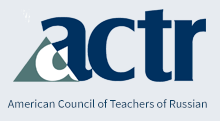Russian Language Journal
Keywords
second language, programs, study abroad, Russian Flagship Program
Abstract
Recent research in the field of second language acquisition is reconsidering the relationship between learning context and language gain, and is reevaluating study abroad programs compared to home-based immersion programs (Collentine and Freed 2004; Freed et al 2004, Segalowitz et al 2004). These researchers and others (Pellegrino 2005, Rivers 1998, Davidson et al 1995) point out that learners in study abroad programs often do not achieve expected language gains across major thresholds as measured by ACTFL oral proficiency standards, and a large proportion of students make no measurable gain, even after four months of study abroad in Russia (Davidson 2007, 2005). In order to shed light on such findings, research offers a host of possible explanations, including variations in learning strategies (O’Malley and Chamot 1990, Garner 1990), individual learner differences (Leaver 1997), motivation (Gardner 1985), risk-taking behaviors (Pellegrino 2005), and access to target language communities (Norton and Toohey 2001), to name a few. Admittedly, the complex nature of language learning prevents researchers from determining precisely why some students make more progress than others in acquiring language during study abroad. However, we can extrapolate some general learning behaviors exhibited by successful language learners, such as those who participated in the Russian Flagship Program, and can compare them to behaviors that emerge among learners in other semester and academic year programs through American Councils.
Recommended Citation
Bain, S. L. (2007). Language Learning Behaviors Outside of the Study Abroad Classroom: an Analysis of ACTR Program Participants At The Semester, Academic Year and Flagship Levels. Russian Language Journal, 57(1). https://doi.org/10.70163/0036-0252.1224


